
ITEP's Research Priorities
- 2025 tax debate
- Blog
- Cannabis Taxes
- Corporate Taxes
- Corporate Taxes
- Earned Income Tax Credit
- Education Tax Breaks
- Estate Tax
- Federal Policy
- Fines and Fees
- Georgia
- Immigration
- Income & Profits
- Income Taxes
- Inequality and the Economy
- ITEP Work in Action
- Local Income Taxes
- Local Policy
- Local Property Taxes
- Local Refundable Tax Credits
- Local Sales Taxes
- Maps
- Media Quotes
- News Releases
- OBBBA
- Other Revenues
- Personal Income Taxes
- Property & Wealth
- Property Taxes
- Property Taxes
- Publications
- Refundable Tax Credits
- Sales & Excise
- Sales, Gas and Excise Taxes
- Sales, Gas and Excise Taxes
- SALT Deduction
- Select Media Mentions
- Social Media
- Staff
- Staff Quotes
- State Corporate Taxes
- State Policy
- State Reports
- States
- Tax Analyses
- Tax Basics
- Tax Credits for Workers and Families
- Tax Credits for Workers and Families
- Tax Guide
- Tax Principles
- Tax Reform Options and Challenges
- Taxing Wealth and Income from Wealth
- Toolkits
- Trump Tax Policies
- Video
- Webinar
- Who Pays?
Nevada: Who Pays? 7th Edition
January 9, 2024 • By ITEP Staff
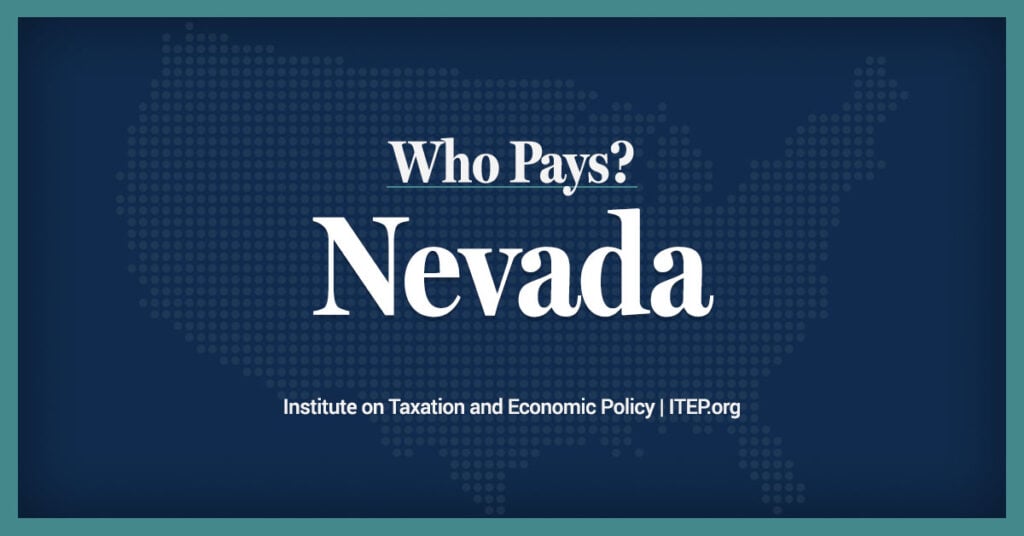
Nevada Download PDF All figures and charts show 2024 tax law in Nevada, presented at 2023 income levels. Senior taxpayers are excluded for reasons detailed in the methodology. Our analysis includes nearly all (99.9 percent) state and local tax revenue collected in Nevada. State and local tax shares of family income Top 20% Income Group […]
Montana: Who Pays? 7th Edition
January 9, 2024 • By ITEP Staff
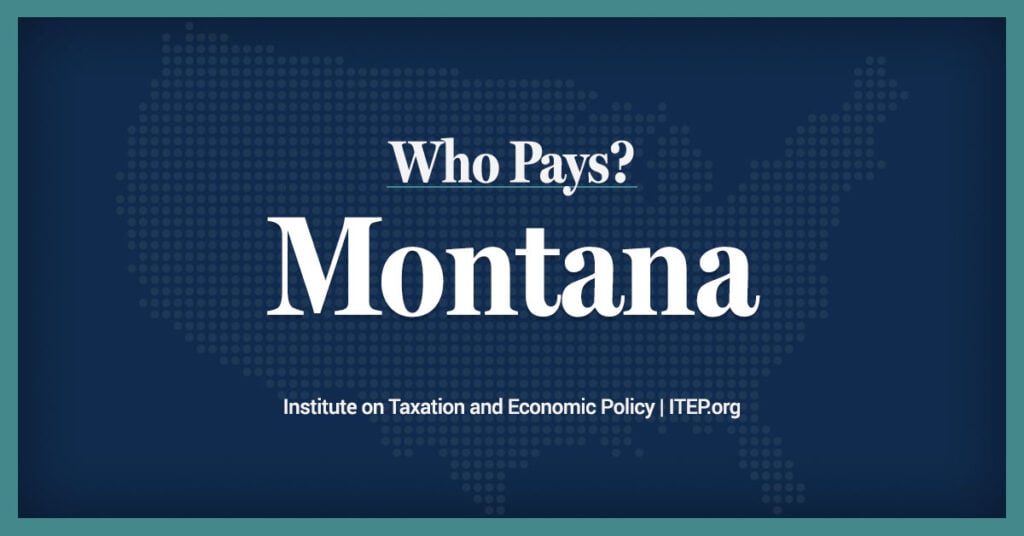
Montana Download PDF All figures and charts show 2024 tax law in Montana, presented at 2023 income levels. Senior taxpayers are excluded for reasons detailed in the methodology. Our analysis includes nearly all (99.5 percent) state and local tax revenue collected in Montana. State and local tax shares of family income Top 20% Income Group […]
Nebraska: Who Pays? 7th Edition
January 9, 2024 • By ITEP Staff
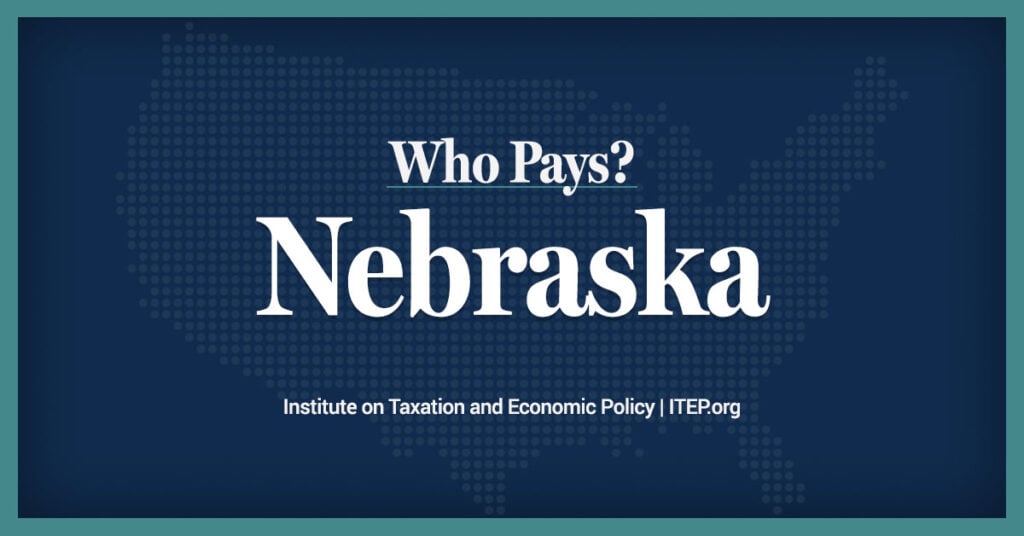
Nebraska Download PDF All figures and charts show 2024 tax law in Nebraska, presented at 2023 income levels. Senior taxpayers are excluded for reasons detailed in the methodology. Our analysis includes nearly all (99.5 percent) state and local tax revenue collected in Nebraska. These figures depict Nebraska’s personal income, corporate income and property taxes at […]
Missouri: Who Pays? 7th Edition
January 9, 2024 • By ITEP Staff
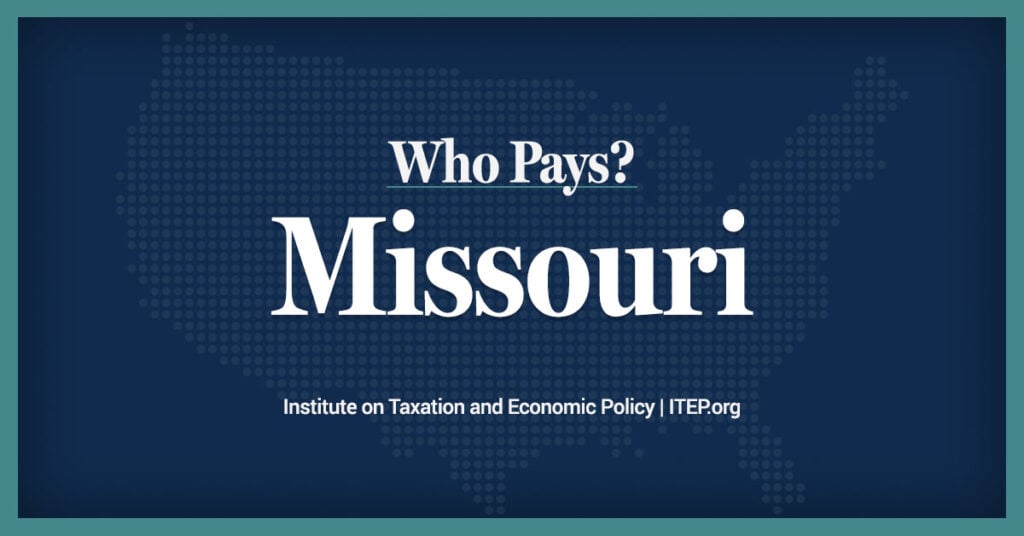
Missouri Download PDF All figures and charts show 2024 tax law in Missouri, presented at 2023 income levels. Senior taxpayers are excluded for reasons detailed in the methodology. Our analysis includes nearly all (98 percent) state and local tax revenue collected in Missouri. These figures depict Missouri’s top income tax rate at 4.8 percent. The […]
Mississippi: Who Pays? 7th Edition
January 9, 2024 • By ITEP Staff
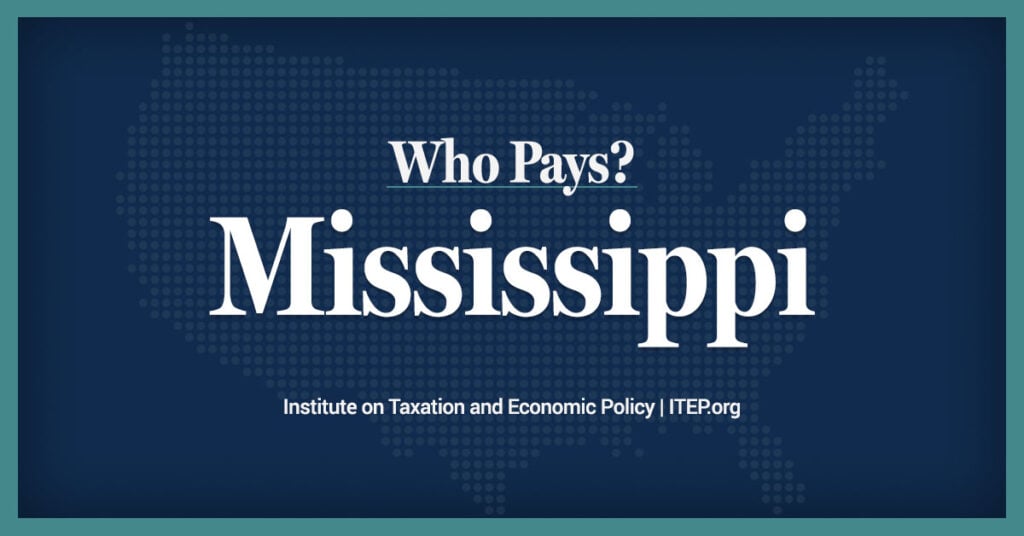
Mississippi Download PDF All figures and charts show 2024 tax law in Mississippi, presented at 2023 income levels. Senior taxpayers are excluded for reasons detailed in the methodology. Our analysis includes nearly all (99.6 percent) state and local tax revenue collected in Mississippi. These figures depict Mississippi’s income tax rate at 4.7 percent. That rate […]
Michigan: Who Pays? 7th Edition
January 9, 2024 • By ITEP Staff
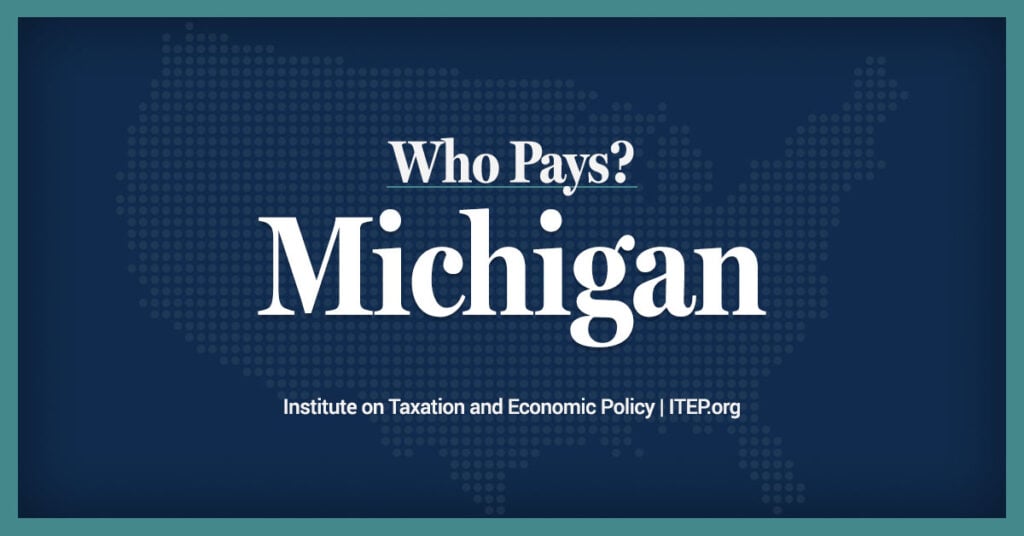
Michigan Download PDF All figures and charts show 2024 tax law in Michigan, presented at 2023 income levels. Senior taxpayers are excluded for reasons detailed in the methodology. Our analysis includes nearly 100 percent of state and local tax revenue collected in Michigan. State and local tax shares of family income Top 20% Income Group […]
Minnesota: Who Pays? 7th Edition
January 9, 2024 • By ITEP Staff
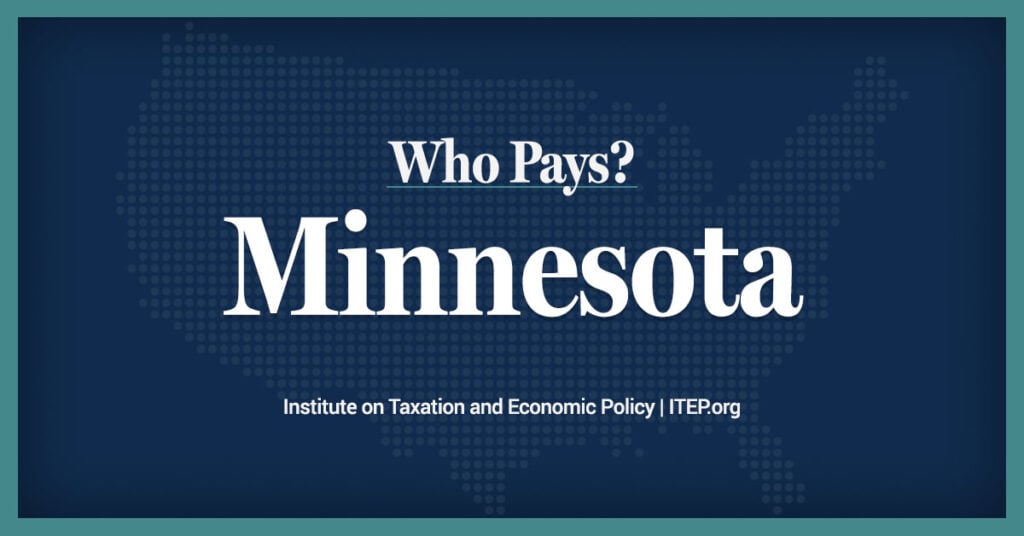
Minnesota Download PDF All figures and charts show 2024 tax law in Minnesota, presented at 2023 income levels. Senior taxpayers are excluded for reasons detailed in the methodology. Our analysis includes nearly all (99.9 percent) state and local tax revenue collected in Minnesota. As seen in Appendix D, recent tax policy changes have added to […]
Massachusetts: Who Pays? 7th Edition
January 9, 2024 • By ITEP Staff
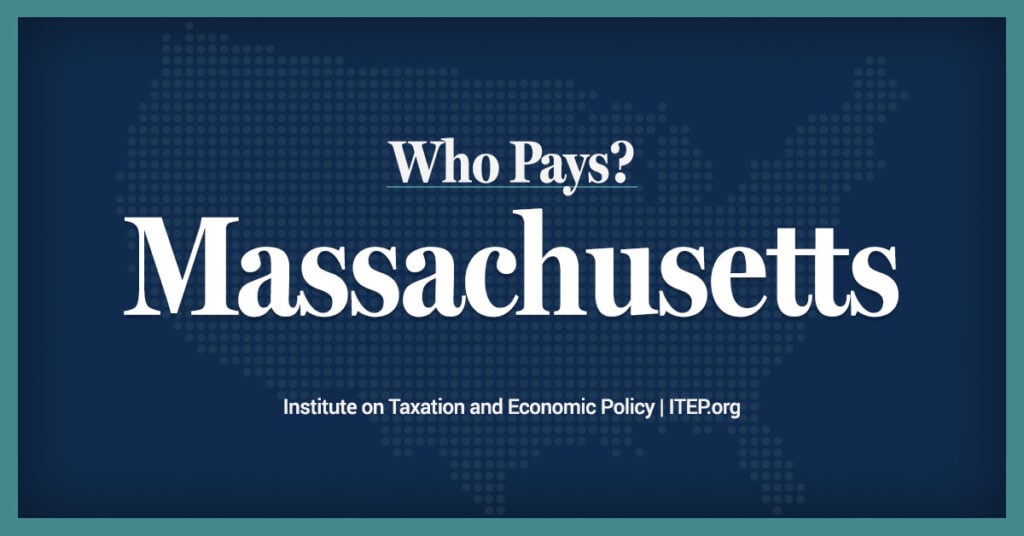
Massachusetts Download PDF All figures and charts show 2024 tax law in Massachusetts, presented at 2023 income levels. Senior taxpayers are excluded for reasons detailed in the methodology. Our analysis includes nearly all (99.8 percent) state and local tax revenue collected in Massachusetts. As seen in Appendix D, recent tax policy changes have significantly lessened […]
Maryland: Who Pays? 7th Edition
January 9, 2024 • By ITEP Staff
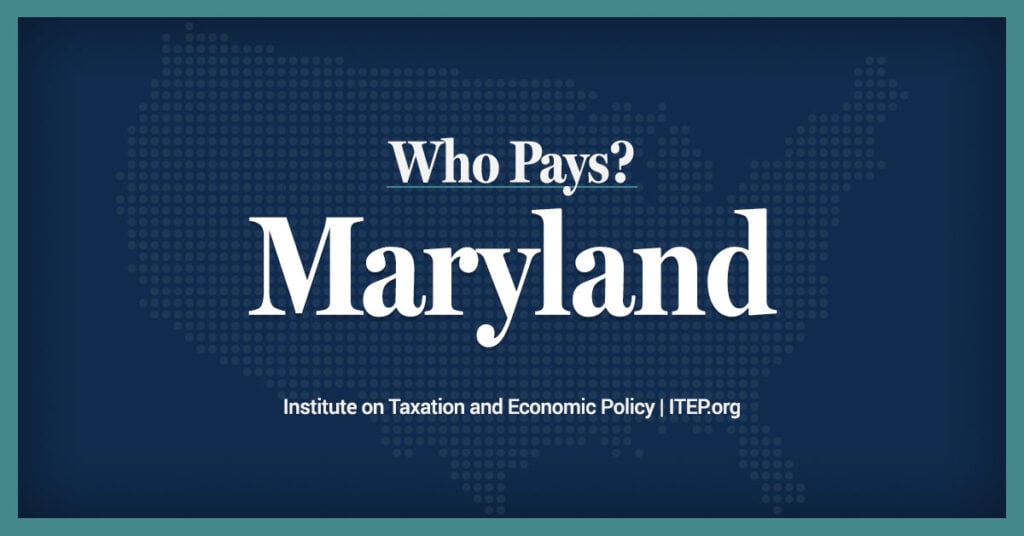
Maryland Download PDF All figures and charts show 2024 tax law in Maryland, presented at 2023 income levels. Senior taxpayers are excluded for reasons detailed in the methodology. Our analysis includes nearly all (99.2 percent) state and local tax revenue collected in Maryland. State and local tax shares of family income Top 20% Income Group […]
Maine: Who Pays? 7th Edition
January 9, 2024 • By ITEP Staff
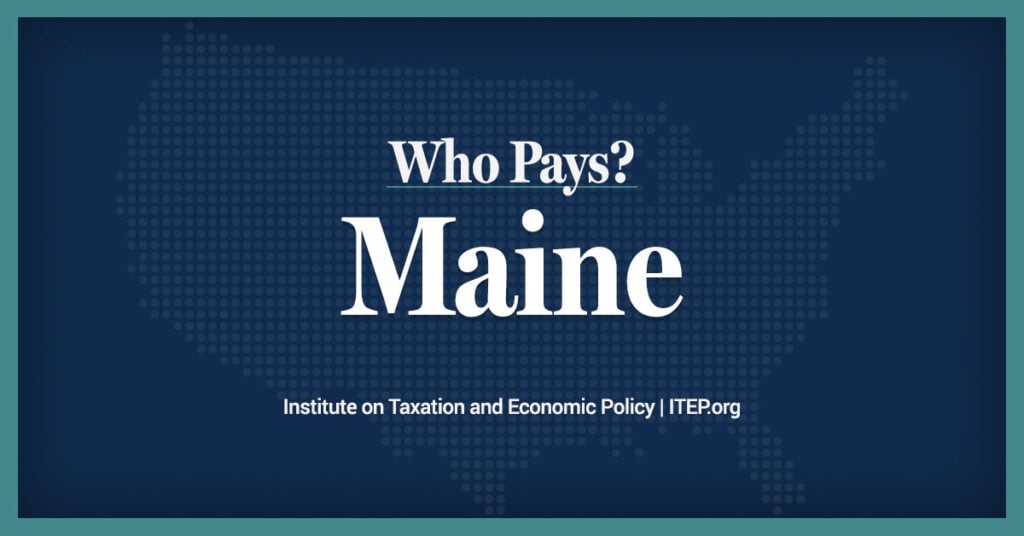
Maine Download PDF All figures and charts show 2024 tax law in Maine, presented at 2023 income levels. Senior taxpayers are excluded for reasons detailed in the methodology. Our analysis includes nearly all (99.8 percent) state and local tax revenue collected in Maine. State and local tax shares of family income Top 20% Income Group […]
Kentucky: Who Pays? 7th Edition
January 9, 2024 • By ITEP Staff
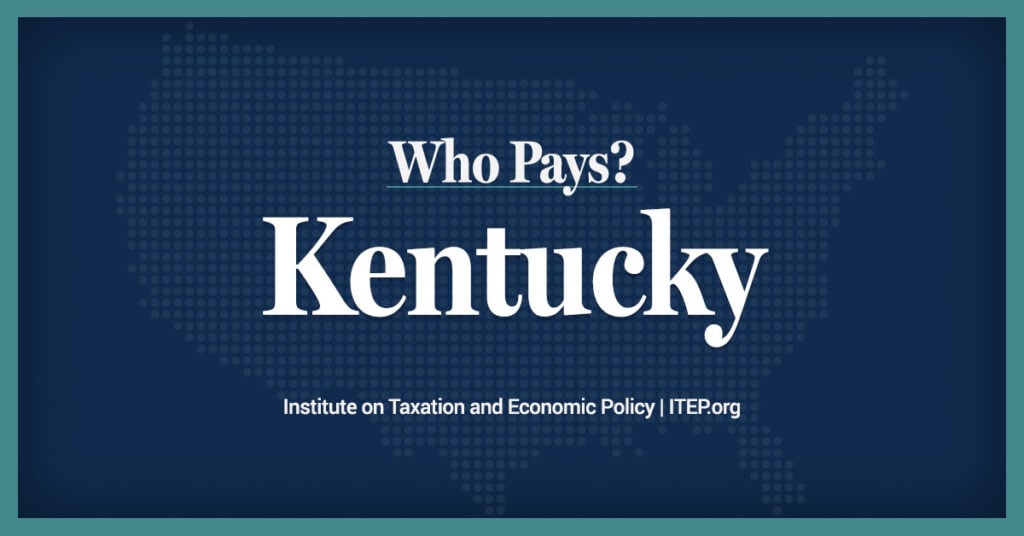
Kentucky Download PDF All figures and charts show 2024 tax law in Kentucky, presented at 2023 income levels. Senior taxpayers are excluded for reasons detailed in the methodology. Our analysis includes nearly all (99.6 percent) state and local tax revenue collected in Kentucky. These figures depict Kentucky’s flat personal income tax rate of 4 percent. […]
Louisiana: Who Pays? 7th Edition
January 9, 2024 • By ITEP Staff
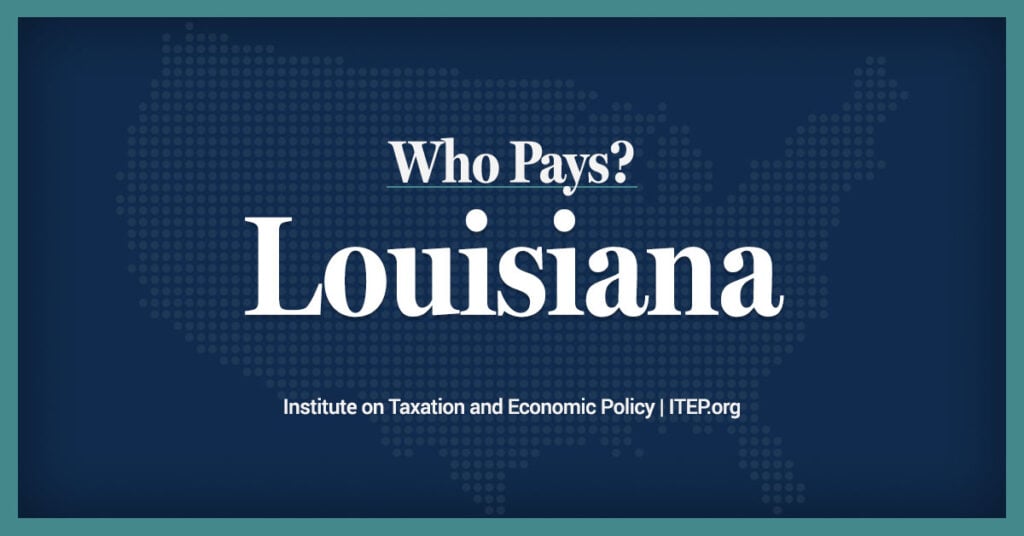
Louisiana Download PDF All figures and charts show 2024 tax law in Louisiana, presented at 2023 income levels. Senior taxpayers are excluded for reasons detailed in the methodology. Our analysis includes nearly 100 percent of state and local tax revenue collected in Louisiana. These figures depict Louisiana’s EITC at its 2024 level of 5 percent […]
Kansas: Who Pays? 7th Edition
January 9, 2024 • By ITEP Staff
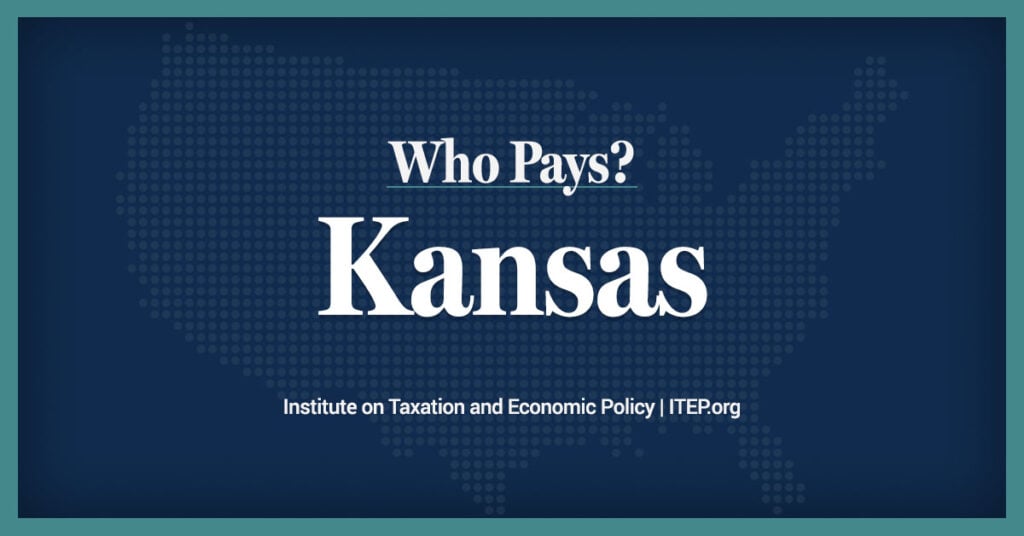
Kansas Download PDF All figures and charts show 2024 tax law in Kansas, presented at 2023 income levels. Senior taxpayers are excluded for reasons detailed in the methodology. Our analysis includes nearly all (99.9 percent) state and local tax revenue collected in Kansas. These figures depict Kansas’s grocery sales tax rate at its 2024 level […]
Iowa: Who Pays? 7th Edition
January 9, 2024 • By ITEP Staff
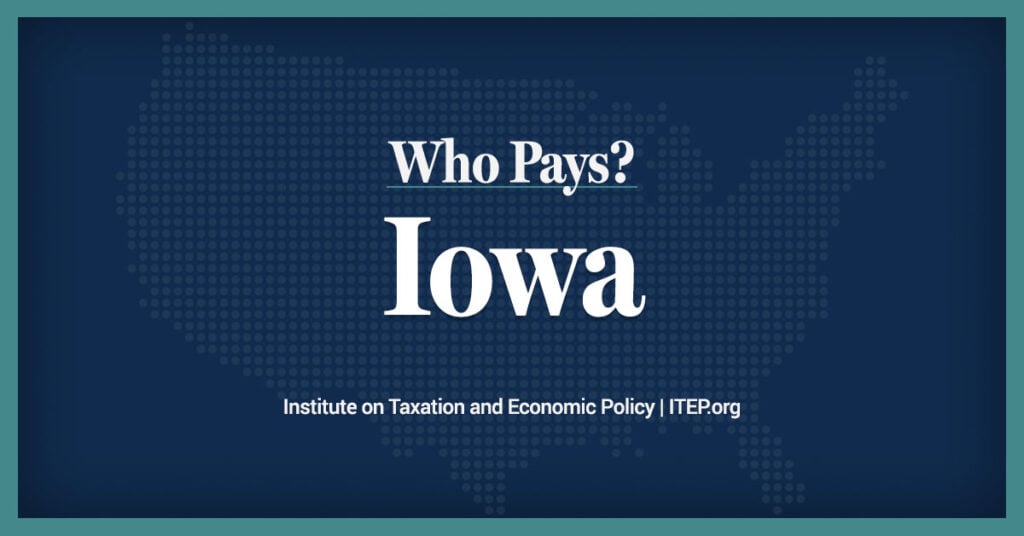
Iowa Download PDF All figures and charts show 2024 tax law in Iowa, presented at 2023 income levels. Senior taxpayers are excluded for reasons detailed in the methodology. Our analysis includes nearly all (99.9 percent) state and local tax revenue collected in Iowa. These figures depict Iowa’s 2024 graduated personal income tax, with a top […]
Illinois: Who Pays? 7th Edition
January 9, 2024 • By ITEP Staff
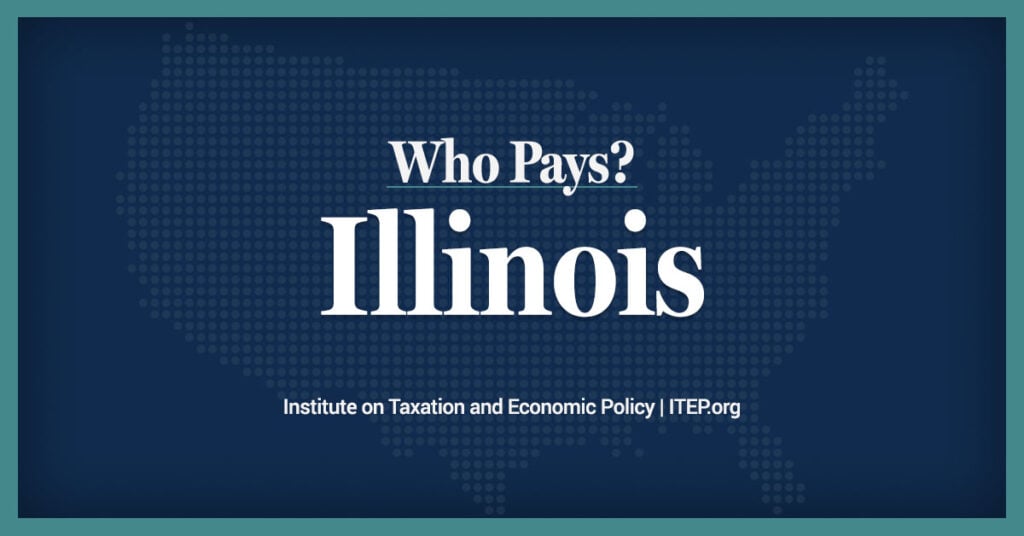
Illinois Download PDF All figures and charts show 2024 tax law in Illinois, presented at 2023 income levels. Senior taxpayers are excluded for reasons detailed in the methodology. Our analysis includes nearly all (98.6 percent) state and local tax revenue collected in Illinois. State and local tax shares of family income Top 20% Income Group […]
Indiana: Who Pays? 7th Edition
January 9, 2024 • By ITEP Staff
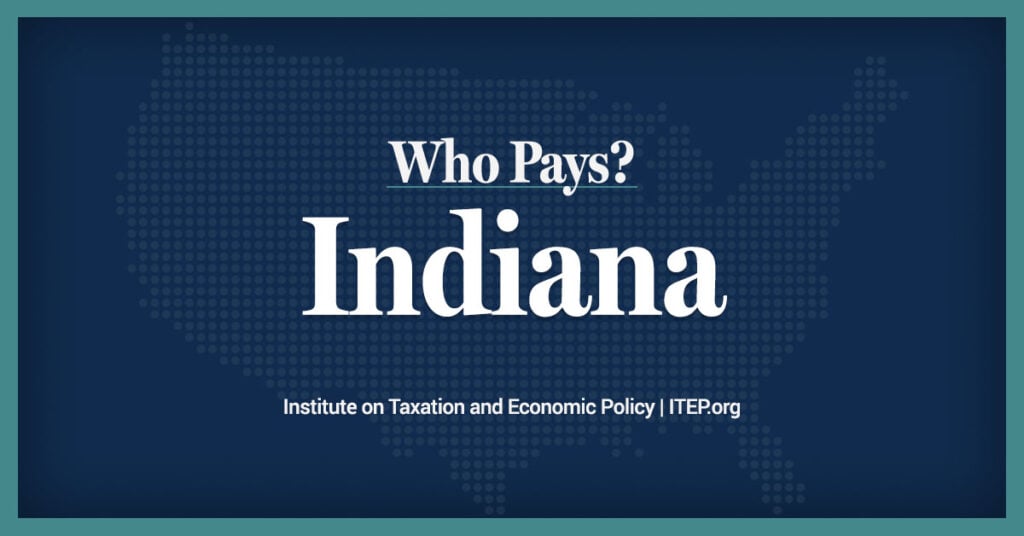
Indiana Download PDF All figures and charts show 2024 tax law in Indiana, presented at 2023 income levels. Senior taxpayers are excluded for reasons detailed in the methodology. Our analysis includes nearly all (99.8 percent) state and local tax revenue collected in Indiana. These figures depict Indiana’s flat personal income tax rate at 3.05 percent. […]
Idaho: Who Pays? 7th Edition
January 9, 2024 • By ITEP Staff

Idaho Download PDF All figures and charts show 2024 tax law in Idaho, presented at 2023 income levels. Senior taxpayers are excluded for reasons detailed in the methodology. Our analysis includes nearly all (99.7 percent) state and local tax revenue collected in Idaho. As seen in Appendix D, recent legislative changes have increased the regressive […]
Hawaiʻi: Who Pays? 7th Edition
January 9, 2024 • By ITEP Staff
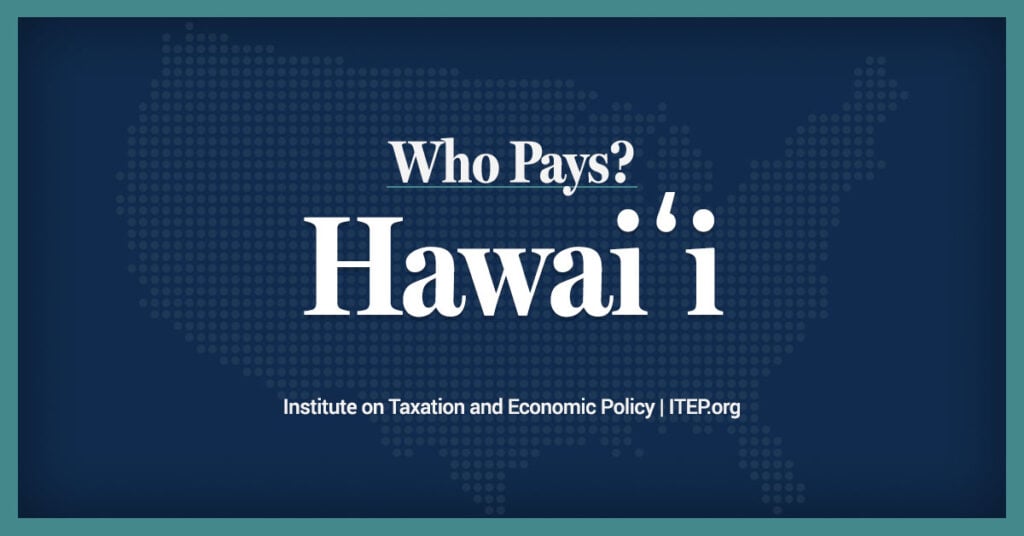
Hawai’i Download PDF All figures and charts show 2024 tax law in Hawai’i, presented at 2023 income levels. Senior taxpayers are excluded for reasons detailed in the methodology. Our analysis includes nearly all (99.5 percent) state and local tax revenue collected in Hawai’i. State and local tax shares of family income Top 20% Income Group […]
Florida: Who Pays? 7th Edition
January 9, 2024 • By ITEP Staff
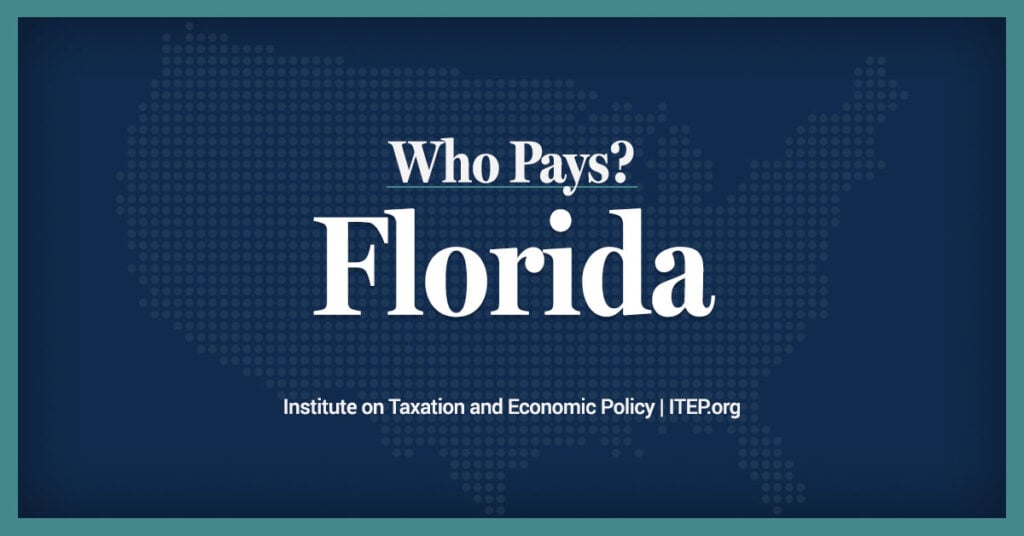
Florida Download PDF All figures and charts show 2024 tax law in Florida, presented at 2023 income levels. Senior taxpayers are excluded for reasons detailed in the methodology. Our analysis includes nearly all (99.9 percent) state and local tax revenue collected in Florida. State and local tax shares of family income Top 20% Income Group […]
Georgia: Who Pays? 7th Edition
January 9, 2024 • By ITEP Staff
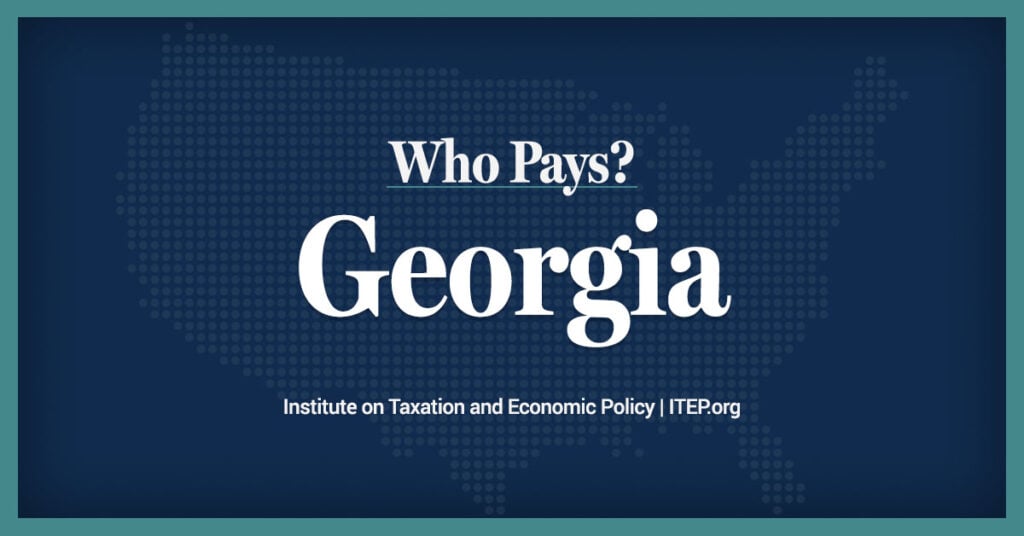
Georgia Download PDF All figures and charts show 2024 tax law in Georgia, presented at 2023 income levels. Senior taxpayers are excluded for reasons detailed in the methodology. Our analysis includes nearly all (99.8 percent) state and local tax revenue collected in Georgia. These figures depict Georgia’s personal income tax rate at its 2024 level […]
District of Columbia: Who Pays? 7th Edition
January 9, 2024 • By ITEP Staff
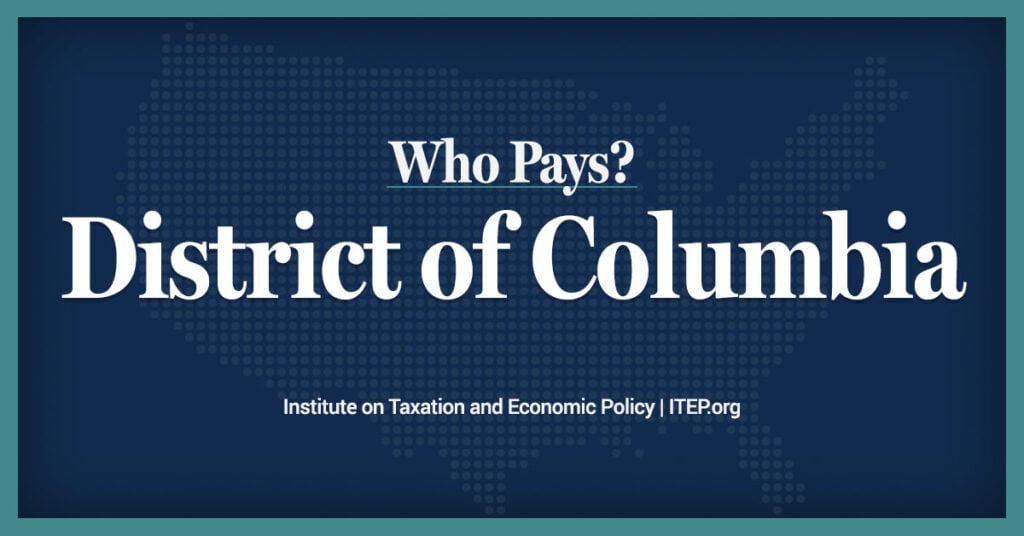
District of Columbia Download PDF All figures and charts show 2024 tax law in the District of Columbia, presented at 2023 income levels. Senior taxpayers are excluded for reasons detailed in the methodology. Our analysis includes nearly 100 percent of DC’s tax revenue. These figures depict the District’s EITC for workers with children at its […]
Delaware: Who Pays? 7th Edition
January 9, 2024 • By ITEP Staff
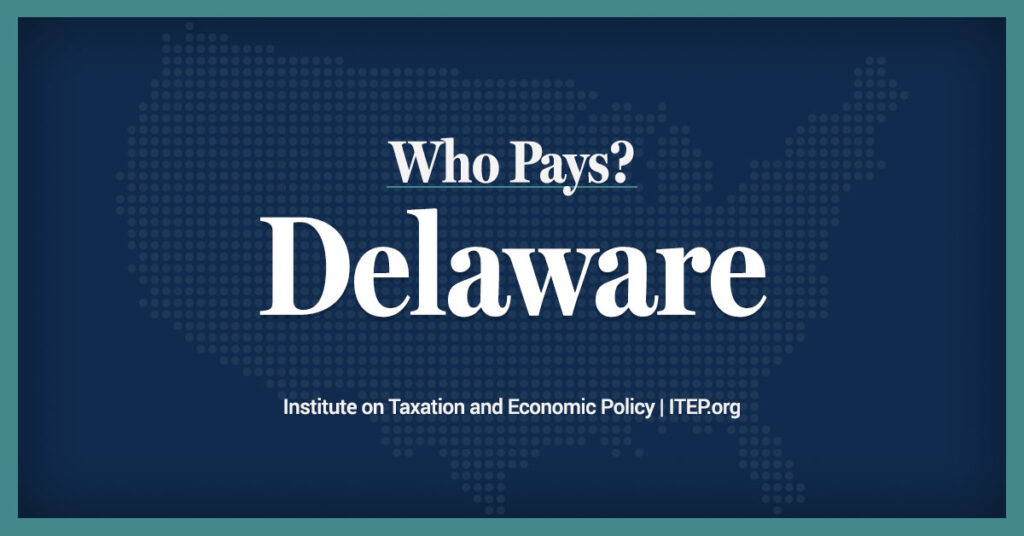
Delaware Download PDF All figures and charts show 2024 tax law in Delaware, presented at 2023 income levels. Senior taxpayers are excluded for reasons detailed in the methodology. Our analysis includes nearly 100 percent of state and local tax revenue collected in Delaware. State and local tax shares of family income Top 20% Income Group […]
Alaska: Who Pays? 7th Edition
January 9, 2024 • By ITEP Staff
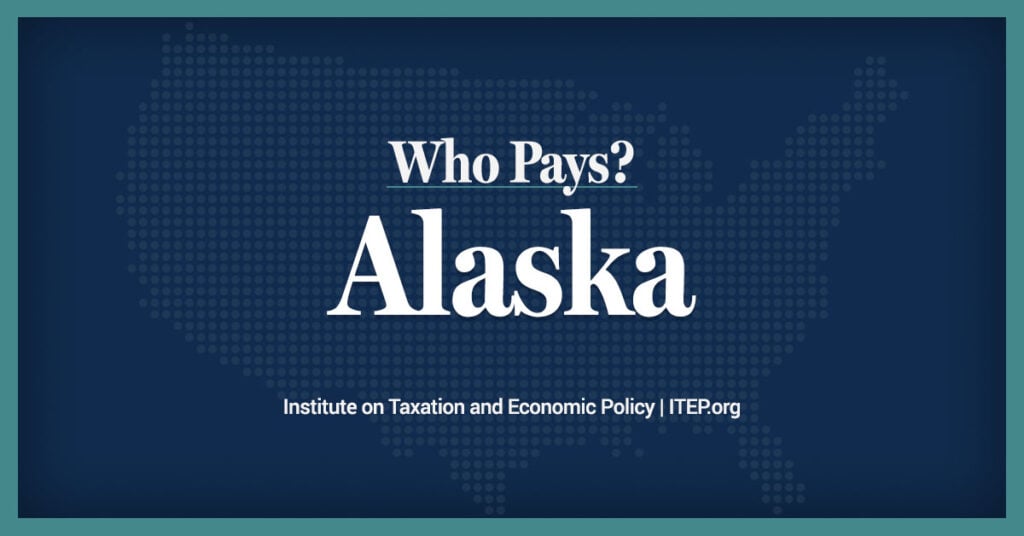
Alaska Download PDF All figures and charts show 2024 tax law in Alaska, presented at 2023 income levels. Senior taxpayers are excluded for reasons detailed in the methodology. Our analysis includes nearly all (99.5 percent) state and local tax revenue collected in Alaska. State and local tax shares of family income Top 20% Income Group […]
Connecticut: Who Pays? 7th Edition
January 9, 2024 • By ITEP Staff
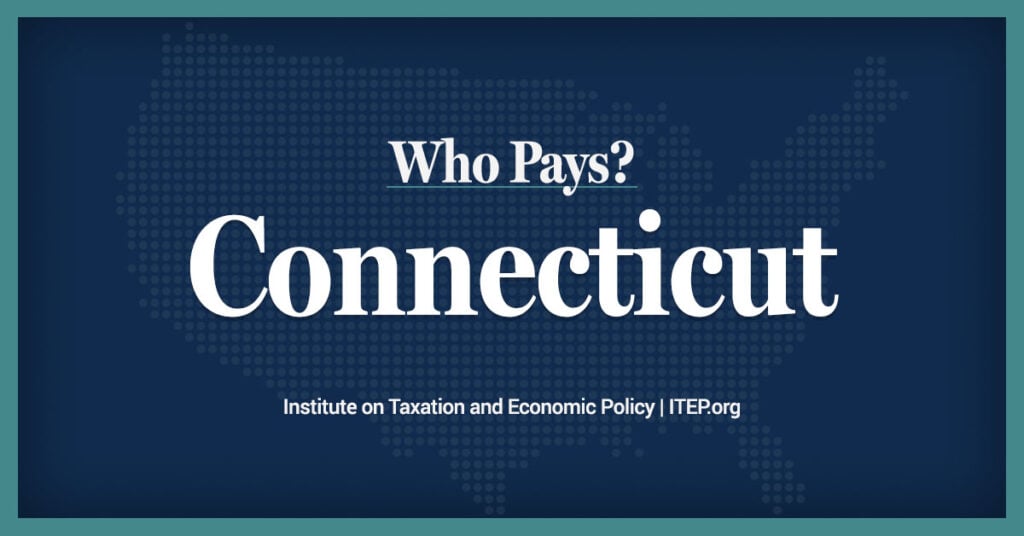
Connecticut Download PDF All figures and charts show 2024 tax law in Connecticut, presented at 2023 income levels. Senior taxpayers are excluded for reasons detailed in the methodology. Our analysis includes nearly 100 percent of state and local tax revenue collected in Connecticut. State and local tax shares of family income Top 20% Income Group […]
Arizona: Who Pays? 7th Edition
January 9, 2024 • By ITEP Staff
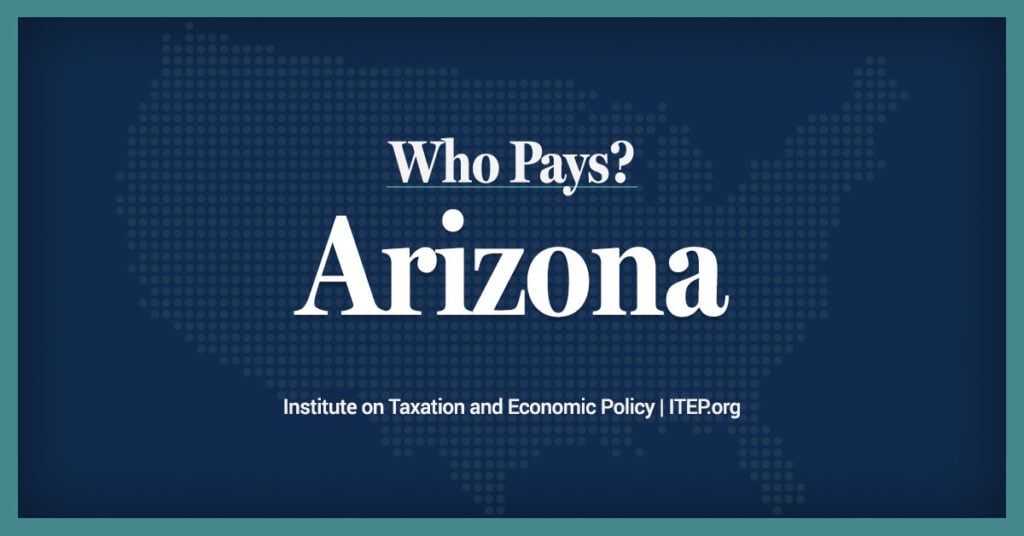
Arizona Download PDF All figures and charts show 2024 tax law in Arizona, presented at 2023 income levels. Senior taxpayers are excluded for reasons detailed in the methodology. Our analysis includes nearly all (99.9 percent) state and local tax revenue collected in Arizona. As seen in Appendix D, recent legislative changes have significantly increased the […]
